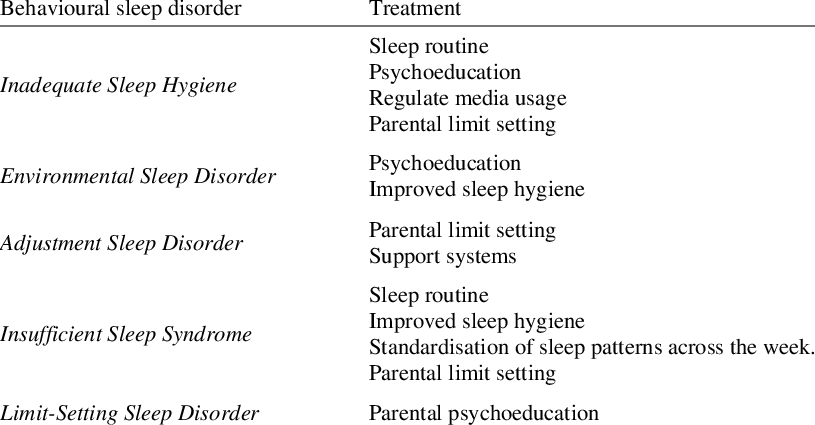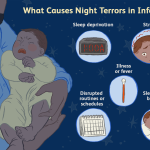Having trouble getting a good night’s sleep? Sleep disorders can be a real nightmare, leaving you feeling exhausted and drained during the day. But fear not, because help is at hand! In this article, we will explore the exciting world of medical treatment options for sleep disorders. So sit back, relax, and get ready to discover the remedies that can help you snooze like a baby once again.
When it comes to sleep disorders, there’s no one-size-fits-all solution. Each disorder requires a tailored approach to treatment. Thankfully, medical advancements have provided us with a range of options to choose from. From lifestyle changes and therapy to medications and surgical interventions, there’s something for everyone. So, whether you’re struggling with insomnia, sleep apnea, restless legs syndrome, or any other sleep disorder, this article will guide you through the maze of treatment possibilities. Get ready to wake up feeling refreshed and rejuvenated as we explore the medical treatment options for sleep disorders.
2. Cognitive Behavioral Therapy for Insomnia (CBT-I): This therapy focuses on changing behaviors and thoughts that contribute to sleep problems.
3. Continuous Positive Airway Pressure (CPAP): This treatment is used for sleep apnea and involves wearing a mask that delivers air pressure to keep the airway open during sleep.
4. Light Therapy: This involves exposure to bright light to help regulate the body’s internal clock and improve sleep.
5. Surgical interventions: In some cases, surgery may be recommended to correct structural issues that contribute to sleep disorders.
It’s important to consult with a healthcare professional to determine the most appropriate treatment option for your specific sleep disorder.
Overview of Medical Treatment Options for Sleep Disorders
Sleep disorders are a common problem affecting millions of people worldwide. These disorders can have a significant impact on a person’s overall well-being and quality of life. Fortunately, there are various medical treatment options available to help manage and alleviate sleep disorders. In this article, we will explore some of the most common and effective medical treatments for sleep disorders.
Medications
Medications are often prescribed to individuals with sleep disorders to help regulate their sleep patterns and promote better sleep. There are different types of medications available, depending on the specific sleep disorder being treated. For example, benzodiazepines are commonly prescribed for insomnia, as they help induce sleep and promote relaxation. However, these medications should be used with caution and under medical supervision due to the potential for dependence and side effects.
Another class of medications used to treat sleep disorders is antidepressants. These medications can be helpful in managing conditions such as insomnia and sleep apnea. Antidepressants work by regulating the brain chemicals involved in sleep regulation, promoting better sleep quality. However, like any medication, they may have side effects and should be taken under the guidance of a healthcare professional.
Benefits of Medications for Sleep Disorders
One of the main benefits of using medications to treat sleep disorders is their ability to provide immediate relief. Unlike other treatment options that may take time to show results, medications can quickly help regulate sleep patterns and alleviate symptoms. This can provide much-needed relief for individuals suffering from sleep disorders and improve their overall well-being.
Additionally, medications can be particularly beneficial for individuals with severe sleep disorders that significantly impact their daily functioning. By restoring a regular sleep pattern, medications can help improve cognitive function, mood, and overall quality of life.
Potential Side Effects and Considerations
While medications can be effective in treating sleep disorders, it is important to be aware of their potential side effects and considerations. Some common side effects of sleep medications include drowsiness, dizziness, and impaired coordination. These side effects can be particularly problematic if a person needs to drive or operate heavy machinery.
Moreover, certain medications used to treat sleep disorders may have the potential for dependence and withdrawal symptoms. It is crucial to follow the prescribed dosage and duration of use as instructed by a healthcare professional. Abruptly stopping the use of certain medications can result in rebound insomnia or other withdrawal symptoms.
It is also important to note that medications may not be suitable for everyone. Individuals with certain medical conditions or those taking other medications may need to explore alternative treatment options. Consulting with a healthcare professional is essential to determine the most appropriate medication and dosage for each individual’s specific needs.
Behavioral Therapies
In addition to medications, behavioral therapies are another effective treatment option for sleep disorders. These therapies focus on modifying behaviors and habits that contribute to sleep disturbances. Cognitive-behavioral therapy for insomnia (CBT-I) is one of the most commonly used behavioral therapies for sleep disorders.
CBT-I involves identifying and addressing the underlying causes of insomnia through a combination of techniques. These may include sleep hygiene education, relaxation exercises, stimulus control, and sleep restriction therapy. The goal of CBT-I is to help individuals develop healthy sleep habits and improve their overall sleep quality.
The Effectiveness of Behavioral Therapies
Behavioral therapies have been shown to be highly effective in treating sleep disorders, particularly insomnia. Unlike medications, which provide temporary relief, behavioral therapies aim to address the root causes of sleep disturbances and promote long-term improvements. They empower individuals to take an active role in managing their sleep and develop sustainable habits for better sleep.
Research has consistently shown that CBT-I can lead to significant improvements in sleep quality, reduced time to fall asleep, and decreased wakefulness during the night. These therapeutic techniques can also improve daytime functioning, reduce reliance on sleep medications, and minimize the risk of side effects associated with medication use.
Tips for Incorporating Behavioral Therapies
To maximize the effectiveness of behavioral therapies for sleep disorders, it is essential to commit to the treatment program and make necessary lifestyle changes. Some tips for incorporating behavioral therapies into daily life include:
1. Establishing a consistent sleep schedule: Going to bed and waking up at the same time every day can help regulate the body’s internal clock and promote better sleep.
2. Creating a relaxing bedtime routine: Engaging in calming activities before bed, such as reading, taking a warm bath, or practicing relaxation exercises, can signal to the body that it is time to wind down and prepare for sleep.
3. Optimizing the sleep environment: Creating a comfortable and conducive sleep environment by keeping the bedroom dark, quiet, and at a cool temperature can enhance sleep quality.
4. Limiting exposure to electronic devices: The blue light emitted by electronic devices can interfere with the body’s production of melatonin, a hormone that regulates sleep. It is advisable to avoid using electronic devices close to bedtime.
By implementing these behavioral changes and incorporating the principles of CBT-I, individuals can significantly improve their sleep and manage sleep disorders more effectively.
Other Treatment Options
In addition to medications and behavioral therapies, there are other treatment options available for sleep disorders. These may include:
1. Continuous Positive Airway Pressure (CPAP) Therapy
CPAP therapy is commonly used to treat sleep apnea, a condition characterized by pauses in breathing during sleep. It involves wearing a mask over the nose or mouth that delivers a continuous flow of air pressure, keeping the airways open and preventing interruptions in breathing.
2. Oral Appliances
Oral appliances, such as mandibular advancement devices, can be prescribed for individuals with sleep apnea. These devices are designed to reposition the jaw and tongue to keep the airway open during sleep.
3. Light Therapy
Light therapy involves exposure to bright light, typically in the morning, to regulate the body’s internal clock and improve sleep-wake patterns. It can be particularly beneficial for individuals with circadian rhythm disorders.
4. Surgical Interventions
In some cases, surgical interventions may be recommended for sleep disorders that do not respond to other treatment options. Surgical procedures for sleep disorders can involve removing excess tissue from the throat or correcting structural abnormalities that contribute to breathing difficulties during sleep.
Overall, the medical treatment options for sleep disorders are varied and cater to the specific needs of individuals. Whether it’s through medications, behavioral therapies, or other interventions, it is essential to consult with a healthcare professional to determine the most suitable treatment approach for each individual. By effectively managing sleep disorders, individuals can experience improved sleep quality and overall well-being.
Key Takeaways: Medical Treatment Options for Sleep Disorders
- Medications can be prescribed to help regulate sleep patterns.
- Continuous positive airway pressure (CPAP) therapy can treat sleep apnea.
- Behavioral therapy can help improve sleep habits and address underlying causes.
- Light therapy may be used to reset the body’s internal clock.
- Surgery may be an option for certain sleep disorders.
Frequently Asked Questions
What are the different medical treatment options for sleep disorders?
Sleep disorders can be debilitating and can greatly affect a person’s quality of life. Fortunately, there are several medical treatment options available to help manage sleep disorders. The choice of treatment depends on the specific sleep disorder and its underlying cause. Here are some common medical treatment options for sleep disorders:
1. Medications: Depending on the type of sleep disorder, medications can be prescribed to help regulate sleep patterns. For example, hypnotics may be prescribed for insomnia, while stimulants may be used to treat narcolepsy.
2. Continuous Positive Airway Pressure (CPAP): This treatment is often used for sleep apnea, a disorder characterized by pauses in breathing during sleep. CPAP involves wearing a mask over the nose or mouth that delivers a steady stream of air, keeping the airway open and preventing interruptions in breathing.
Can cognitive-behavioral therapy be used to treat sleep disorders?
Yes, cognitive-behavioral therapy (CBT) can be an effective treatment for sleep disorders. CBT is a type of therapy that aims to identify and change negative thoughts and behaviors that contribute to sleep problems. It can help individuals develop healthier sleep habits and improve their overall sleep quality.
In CBT for insomnia, for example, the therapist may work with the individual to establish a regular sleep schedule, teach relaxation techniques, and address any underlying anxiety or stress that may be affecting sleep. CBT can be used as a standalone treatment or in combination with other medical interventions.
Are there surgical options for treating sleep disorders?
In some cases, surgical interventions may be considered for the treatment of sleep disorders. However, surgery is usually reserved for more severe cases or when other treatment options have not been successful. Surgical procedures for sleep disorders can vary depending on the specific disorder being treated.
For example, in cases of obstructive sleep apnea, surgical options may include uvulopalatopharyngoplasty (UPPP), which involves removing excess tissue in the throat to widen the airway. Other surgical options for sleep disorders may include maxillomandibular advancement (MMA) for certain types of sleep apnea or implantation of a hypoglossal nerve stimulator.
What role does lifestyle modification play in managing sleep disorders?
Lifestyle modifications can play a crucial role in managing sleep disorders. Making healthy lifestyle choices can contribute to better sleep quality and overall well-being. Here are some lifestyle modifications that can help improve sleep:
1. Establishing a regular sleep schedule: Going to bed and waking up at the same time every day can help regulate the body’s internal clock and promote better sleep.
2. Creating a sleep-friendly environment: Ensure that your bedroom is quiet, dark, and comfortable. Use earplugs, eye masks, or white noise machines if necessary.
3. Avoiding stimulants: Limit the consumption of caffeine, nicotine, and alcohol, especially close to bedtime. These substances can interfere with sleep patterns.
4. Engaging in regular exercise: Regular physical activity can help promote better sleep, but it is important to avoid exercising too close to bedtime as it can be stimulating.
What other non-medical treatment options are available for sleep disorders?
In addition to medical and surgical options, there are non-medical treatment options that can be beneficial for managing sleep disorders. These include:
1. Relaxation techniques: Practices such as deep breathing exercises, progressive muscle relaxation, and meditation can help calm the mind and promote better sleep.
2. Sleep hygiene practices: Good sleep hygiene involves adopting habits that promote healthy sleep, such as avoiding electronic devices before bed, creating a comfortable sleep environment, and establishing a relaxing bedtime routine.
3. Light therapy: Light therapy involves exposure to specific wavelengths of light to regulate the body’s internal clock. It can be particularly helpful for individuals with circadian rhythm disorders.
4. Acupuncture: Some studies suggest that acupuncture may help improve sleep quality and reduce the severity of certain sleep disorders, such as insomnia.
It is important to consult with a healthcare professional to determine the most appropriate treatment options for your specific sleep disorder.
Sleep Disorders: An Overview of Common Types and Treatment Options (C)
Final Thoughts
After exploring the various medical treatment options for sleep disorders, it is clear that there are several effective approaches available to help individuals improve their sleep quality and overcome these challenges. From medications to therapy and lifestyle changes, the key is to find a treatment plan that suits each individual’s specific needs and addresses the underlying causes of their sleep disorder.
One important aspect to keep in mind is the potential side effects and risks associated with certain medications. It is crucial to consult with a healthcare professional or sleep specialist before starting any medication regimen to ensure that it is safe and appropriate for your individual circumstances. Additionally, incorporating lifestyle changes such as establishing a consistent sleep schedule, creating a relaxing bedtime routine, and optimizing the sleep environment can greatly enhance the effectiveness of medical treatments.
Remember, managing sleep disorders is a journey that requires patience and perseverance. With the right combination of medical treatments and lifestyle adjustments, it is possible to regain control over your sleep and wake up feeling refreshed and rejuvenated. Don’t hesitate to reach out for professional help and support along the way. Good sleep is within your reach, and you deserve to experience the restorative benefits it brings to your overall well-being.




